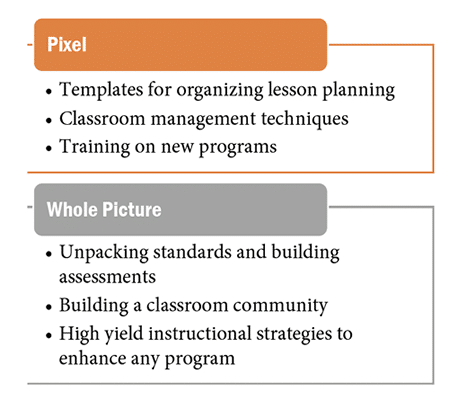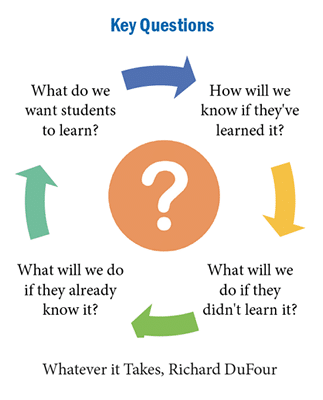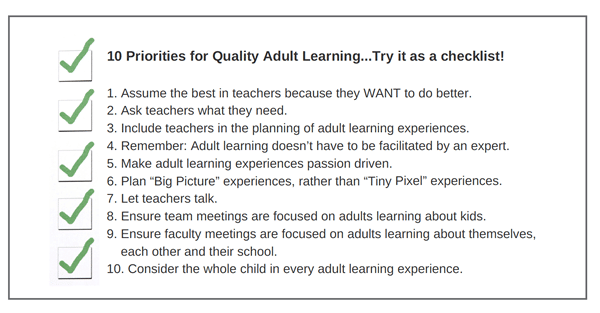By Bethany Hill
Have you ever asked yourself this? I have been trained. I have been developed. I have a new program. What have I learned?
Learning happens daily in the lives of everyone. It happens through mistakes, acquaintances, friends, coworkers, an article, a book, a video, an experience, our emotions, and through the stories of others. Learning occurs intentionally and by happenstance. We learn when there is a need, and because we are curious. Whether 5 months or 50 years into life, we are all learners. I often wonder if children and adults truly learn the same. There are theories that debate both sides. Children have minds that are open, curious, and not subject to bias. As we grow into adulthood, our experiences and knowledge increase, creating filters for how we receive new information.
Does this impact our ability to remain curious about the unknown?
Do our experiences create a fear of learning new things that require us to change something in our lives?
As humans we are born to be learners and use our knowledge of the world to survive. Think about a baby who is learning to grip something he wants. So much learning occurs in that small action! When we go back to the purpose for learning, it is curiosity and desire. The baby wants the object and is curious about how it works, feels, etc.
Now for the BIG question…
How do we support curiosity and desire in adult learners?
Teachers are incredibly busy filling the role of parent, nurse, counselor, supporter, confidant, lead learner of the classroom, grade level chair, RtI team member, interventionist, provider of enrichment, lesson planner, assessor, standardized test administrator, and so much more. Considering the 6-7 hours in the instructional day, and the additional hours spent planning for instruction and assessment, where does the teacher’s learning and professional growth happen? Respecting teachers’ time and including them in their learning will maximize the impact their growth will have on students.
Assume the best in teachers because they WANT to do better.
Does our profession have people in it who don’t care to improve their practice? Absolutely. Should we plan learning for teachers based on this group of teachers? Absolutely NOT! Predicting the implications of a learning experience is part of the art of teaching, but we must be careful to avoid allowing our own bias to interfere with the goal for learning. As Todd Whitaker says, “Assume all people are good.” Teachers know quickly when what they attend is set up for high expectations, or whether it is for communicating accountability.
Ask teachers what they need.
When we visit the doctor the first question asked of us is, “What brings you in today?” In other words, what do you need? One of the surefire ways to align professional learning with what teachers need is to have conversations with teachers about their concerns, fears, lack of resources, need of new resources, strategies, etc. When professional learning is in the form of training, it is often predetermined and narrowly focused, leaving teachers frustrated. Ask teachers what they need. Listen to their responses. Include them in the process.
Include teachers in the planning of adult learning experiences.
Bridging perfectly from asking teachers what they need, is allowing them to become an active participant in planning for their learning. Teachers have amazing insight and they know what teachers need in order to maximize their learning! Involve them! Empower them! Allow them to be the best resource for each other. Kids win once this level of collaboration and trust is embedded into a culture.
Remember: Adult learning doesn’t have to be facilitated by an expert.
Involving teachers in the planning may lead to them being a facilitator of learning for their colleagues. We don’t need a sage on the stage delivering knowledge, we need people who are living the profession. We need people who are willing to share their curiosities, mistakes, and successes with others. We need people who are excited about learning alongside the people in the room.
Some of the best learning experiences stem from authentic conversations with other professionals. Movements like #ObserveMe (Robert Kaplinsky) and The Pineapple Chart (Cult of Pedagogy) are powerful ways for teachers to learn from each other through peer observations. Edcamp has been deemed the “unconference”, because the sessions are not determined until attendees share what they want to learn more about. Willing facilitators head up the discussions, resulting in round table talks and networking. Edcamps can be large and open to an entire state or smaller and more intimate within a school or district. The goal is the same: Powerful interactions and authentic discussion that moves people forward.
Make adult learning experiences passion driven.
When passion and purpose come together, they create a synergy like no other. This synergy can lead to transformational learning and growth within individuals, and the group as a professional learning community. Once areas of focus for learning are determined, seek out the people who are passionate about them! Engagement and connection to the WHY are more likely when the learning is facilitated by someone who is fully invested in the concept. (Note: Invested doesn’t mean expert!)
Plan “Big Picture” experiences, rather than “Tiny Pixel” experiences.
Trainings and professional development sessions that are focused on a specific program, content, and/or method can pigeon hole the learning of teachers. Focusing on the big ideas in education is a greater investment. New programs, curricula and expectations can be shared through a bigger picture, helping teachers make connections to how they will apply them in their setting.

Let teachers talk.
Simple, yet powerful. A strong learning experience should have us grappling, wondering, connecting, and planning. Let teachers talk it out during their learning! They will cherish the time to network with their colleagues and learn together. Learning is social!
Ensure team meetings are focused on adults learning about kids.
When weekly team meetings are part of a school’s expectations, it provides time for teachers in like roles (grade levels, content) to collaborate FOR kids. A true professional learning community stays true to its focus on the big four questions, according to the late Richard Dufour.

This will ensure a laser focus on what’s next for students within their group. Unpacking standards, building common formative assessments, creating rubrics, tiering instruction, and reviewing assessment data during team meetings will maximize student achievement. This IS professional learning!
Ensure faculty meetings are focused on adults learning about themselves, each other and their school.
Time is our most valuable resource, and one we cannot reuse. Making the most of faculty gatherings is vital to the health of a school’s culture. We must think in terms of experiences, rather than informing. If you can send it in an email, it isn’t worth the time in a face-to-face gathering. Use this time for celebrations, collaborations, mindfulness, and self care, with the goal of increasing collective efficacy within the group. Teachers get busy and laser focused on their students and their classrooms. It is refreshing to come together as a group of professionals with the same common vision. The goal of these face-to-face meetings: To leave refreshed with a sense of belonging and a reminder that we are better together.
Consider the whole child in every adult learning experience.
The number one goal of every school is to increase achievement for all learners. Too often, schools will place all of their eggs in the academic basket. This is only one part of the whole child. Success is defined more holistically than grade point averages, class rankings, ACT scores, and other academic accolades. Imagine if every learning experience for teachers was planned with the whole child in mind, focusing on social emotional learning, mindfulness, executive functioning, social awareness, emotional intelligence, the arts and humanities, big ideas over isolated concepts…WOW! Teachers’ ability to reach ALL learners would increase significantly. This is a big picture concept that can enhance the teacher’s impact by placing emphasis on the affective side of each student.
I have a dream and a vision for what adult learning for educators should be: personalized, purposeful, protective (of time), productive, proactive, powerful, and pertinent to the learner. There is no perfect format, but we can prioritize and give teachers a voice in their own learning and growth.
Happy Learning!

Bethany Hill is Assistant Principal at Magness Creek Elementary in Cabot, Arkansas. She is the founder of #JoyfuLeaders, a hashtag that promotes positivity and encouragement among educators. She is one of the originators of #EduAR, a Twitter chat focusing on trending topics in education. Her passions include school culture, adult learning, growing leaders, trauma informed practices, and social emotional learning.
TEPSA Leader, Winter 2020, Vol 33, No 1
Copyright © 2020 by the Texas Elementary Principals and Supervisors Association. No part of articles in TEPSA publications or on the website may be reproduced in any medium without the permission of the Texas Elementary Principals and Supervisors Association.


